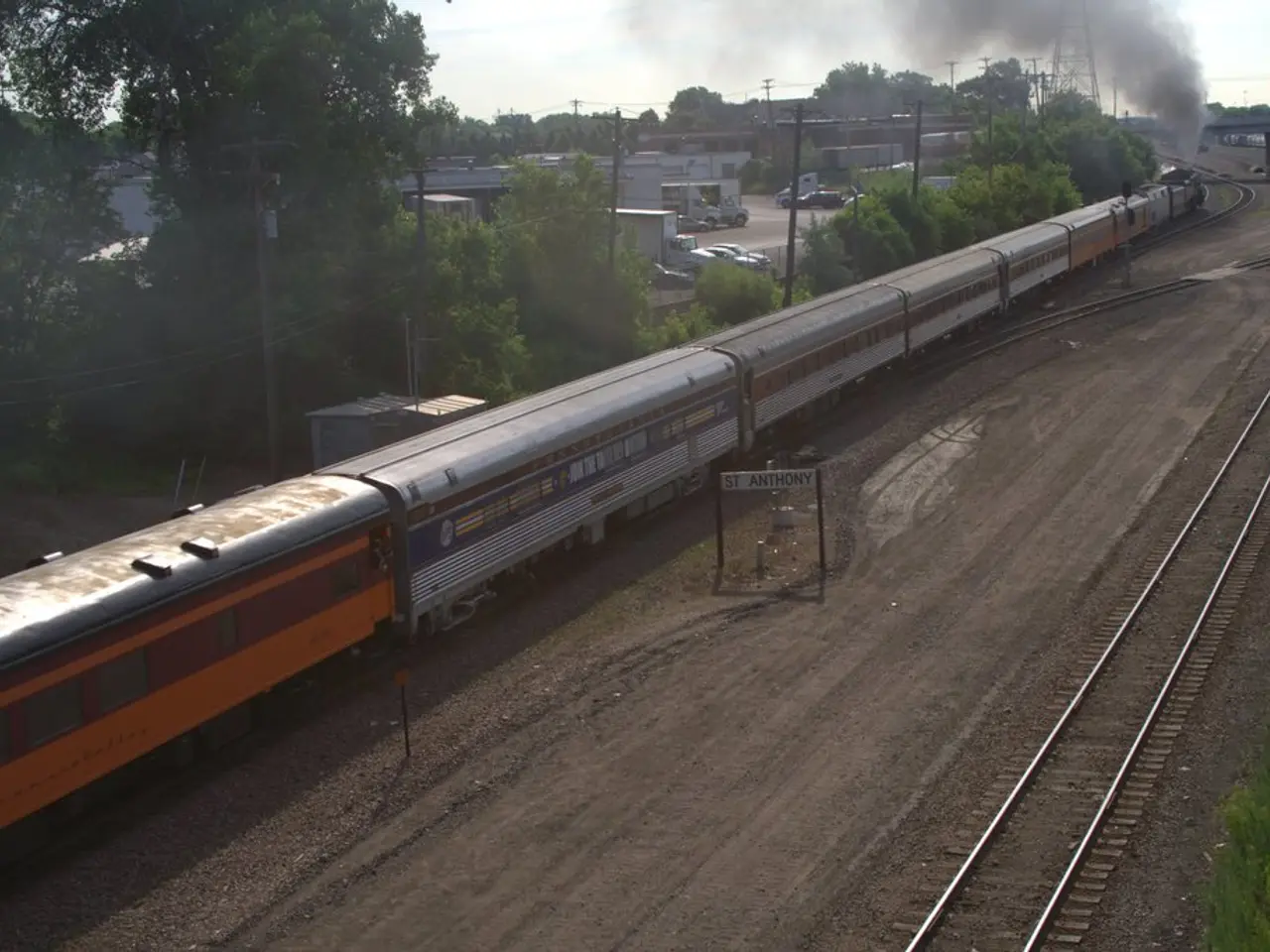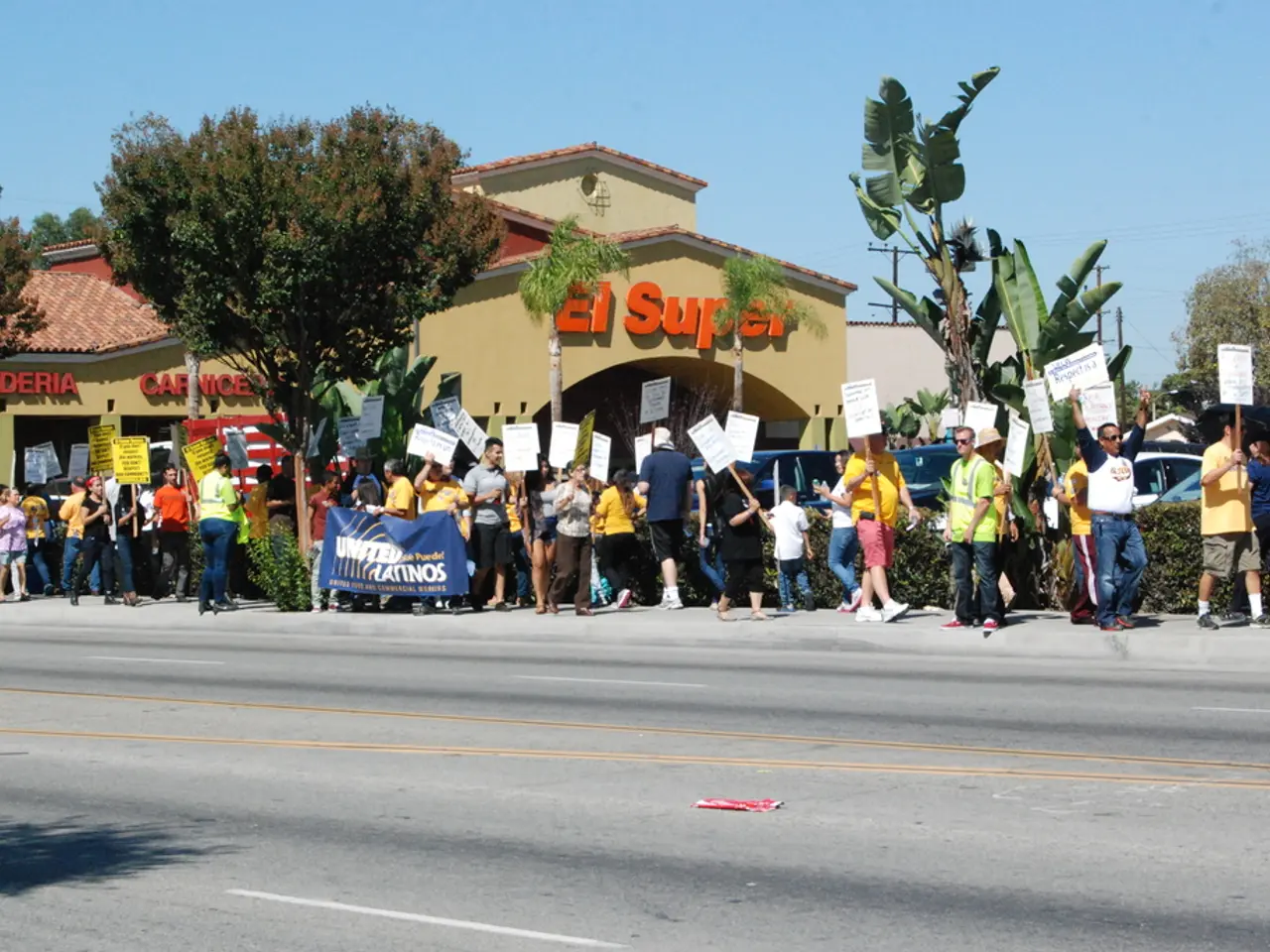Will Karlsruhe provide assistance to the coalition?
Stalemate in the Federal Constitutional Court Election Process
The election process for three new judges at Germany's Federal Constitutional Court is currently at a standstill, with a deep political rift between the center-left SPD and the center-right Union (CDU/CSU) parties. The impasse centers around the controversial SPD-nominated candidate, law professor Frauke Brosius-Gersdorf.
The CDU/CSU withdrew their support for Brosius-Gersdorf's nomination just hours before the scheduled parliamentary vote, citing controversies around her stances on abortion, mandatory COVID-19 vaccinations, and allegations of plagiarism. This move effectively blocked the election, as the required two-thirds majority would not be reached.
The dispute has escalated into a broader political impasse, with accusations of political maneuvering, smear campaigns, and far-right influence. The far-right AfD has been reported to have played a significant role in stirring opposition to Brosius-Gersdorf via social media campaigns.
The inability to fill these crucial judicial seats threatens the functioning and perceived legitimacy of the Federal Constitutional Court, a core democratic institution and guardian of Germany's Basic Law.
Potential Next Steps
If a compromise is not reached by the end of the parliamentary summer break, several scenarios could unfold:
- Continuation of the impasse, leaving the Court understaffed and potentially undermining its capacity and authority.
- Pressure for new nominations and negotiations between the SPD and Union to find mutually acceptable candidates, given the constitutional necessity of a two-thirds parliamentary majority in electing judges.
- Increased political tension and criticism within Germany’s coalition government, possibly affecting broader governance and stability.
- Potentially more public and parliamentary scrutiny or intervention to resolve the stalemate, as the Federal Constitutional Court is critical to upholding democratic norms and rule of law in Germany.
Regulations and Procedures
The dispute is regulated in paragraph 7a of the Federal Constitutional Court Act. If no decision is made by the Bundestag two months after her nomination, the oldest member of the election committee must ask the Federal Constitutional Court for a proposal.
The task falls to the 67-year-old CDU politician Stefan Korbach. However, a compromise between the Union and SPD is not in sight, and the decision on the filling of the three positions remains with the Bundestag. The right of the election body to elect someone not proposed by the Federal Constitutional Court remains unaffected.
The Bundestag's first meeting after the summer break is scheduled for September 10. The SPD continues to support Brosius-Gersdorf for the position. The outcome of the election process will have significant implications for the functioning of the Federal Constitutional Court and the political landscape in Germany.
- given the ongoing political dispute and the need for a two-thirds majority in the Bundestag to elect judges, there might be renewed negotiations between the SPD and Union, involving potential new nominations for the unfilled positions at the Federal Constitutional Court.
- as the regulation falls under paragraph 7a of the Federal Constitutional Court Act, if no decision is made by the Bundestag two months after a nomination, the oldest member of the election committee (Stefan Korbach) is required to ask the Federal Constitutional Court for a proposal, potentially leading to a probabal compromise being reached.







